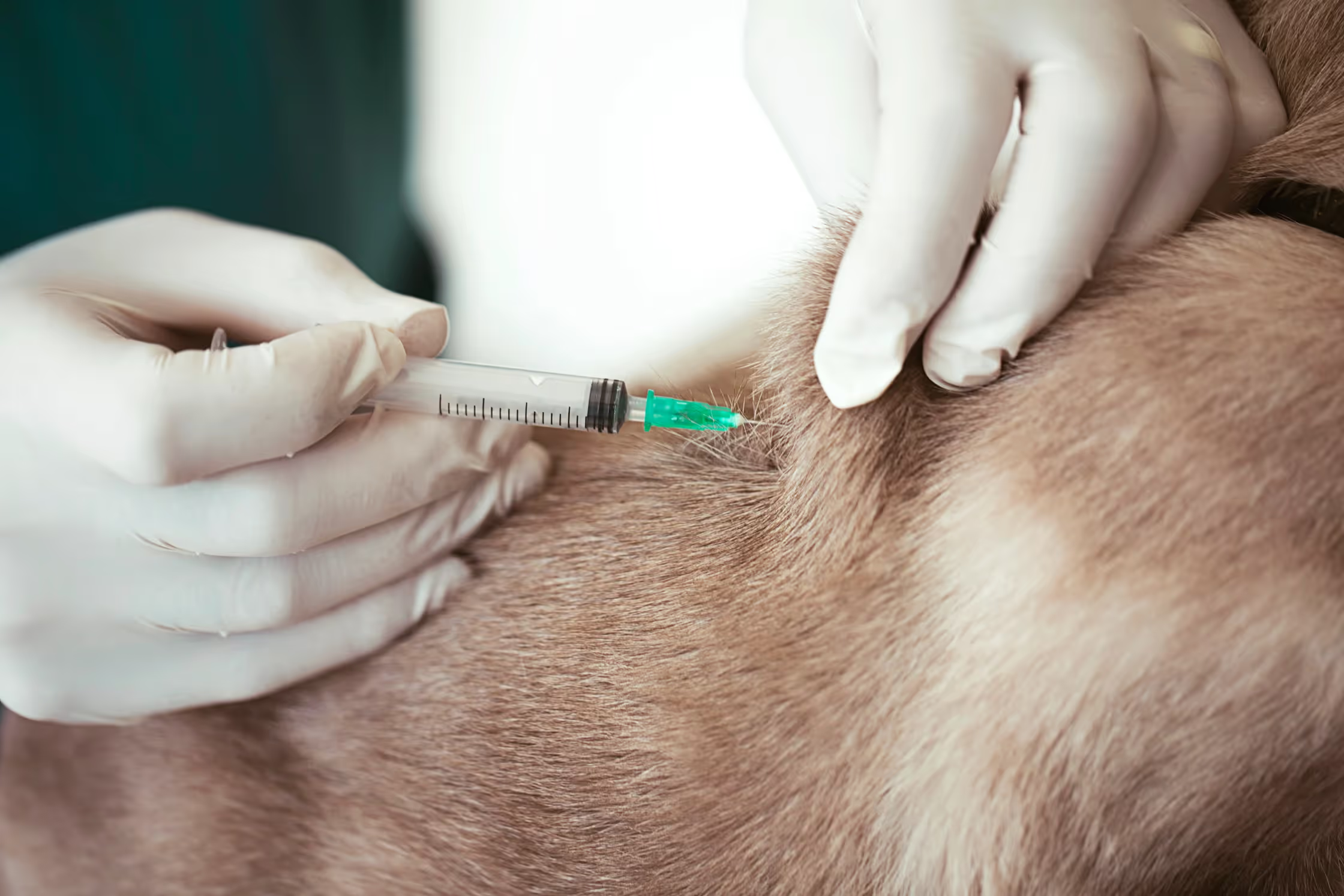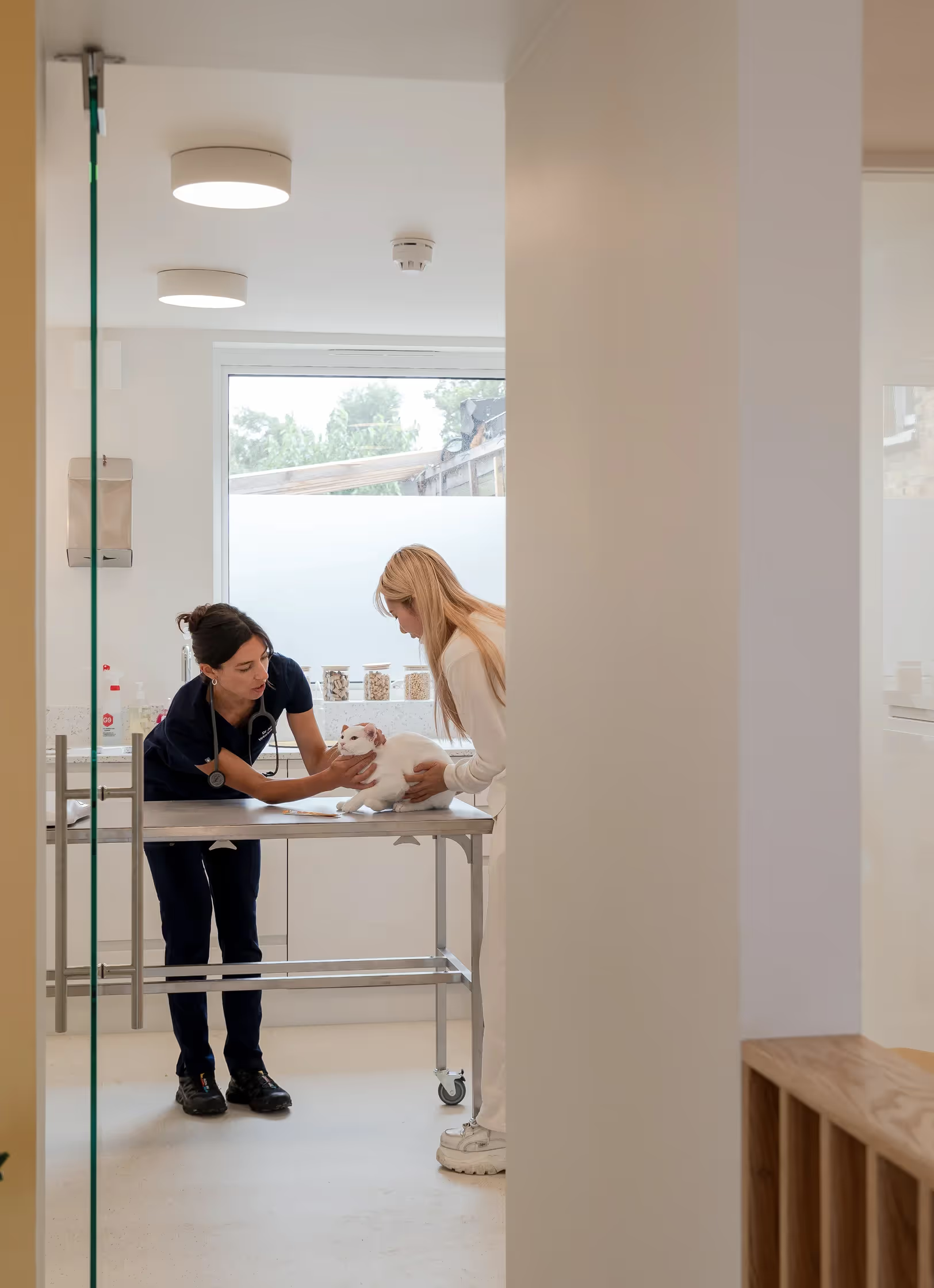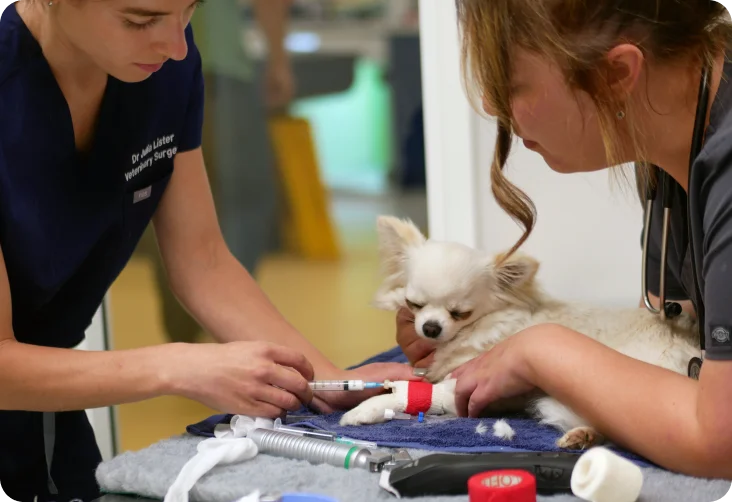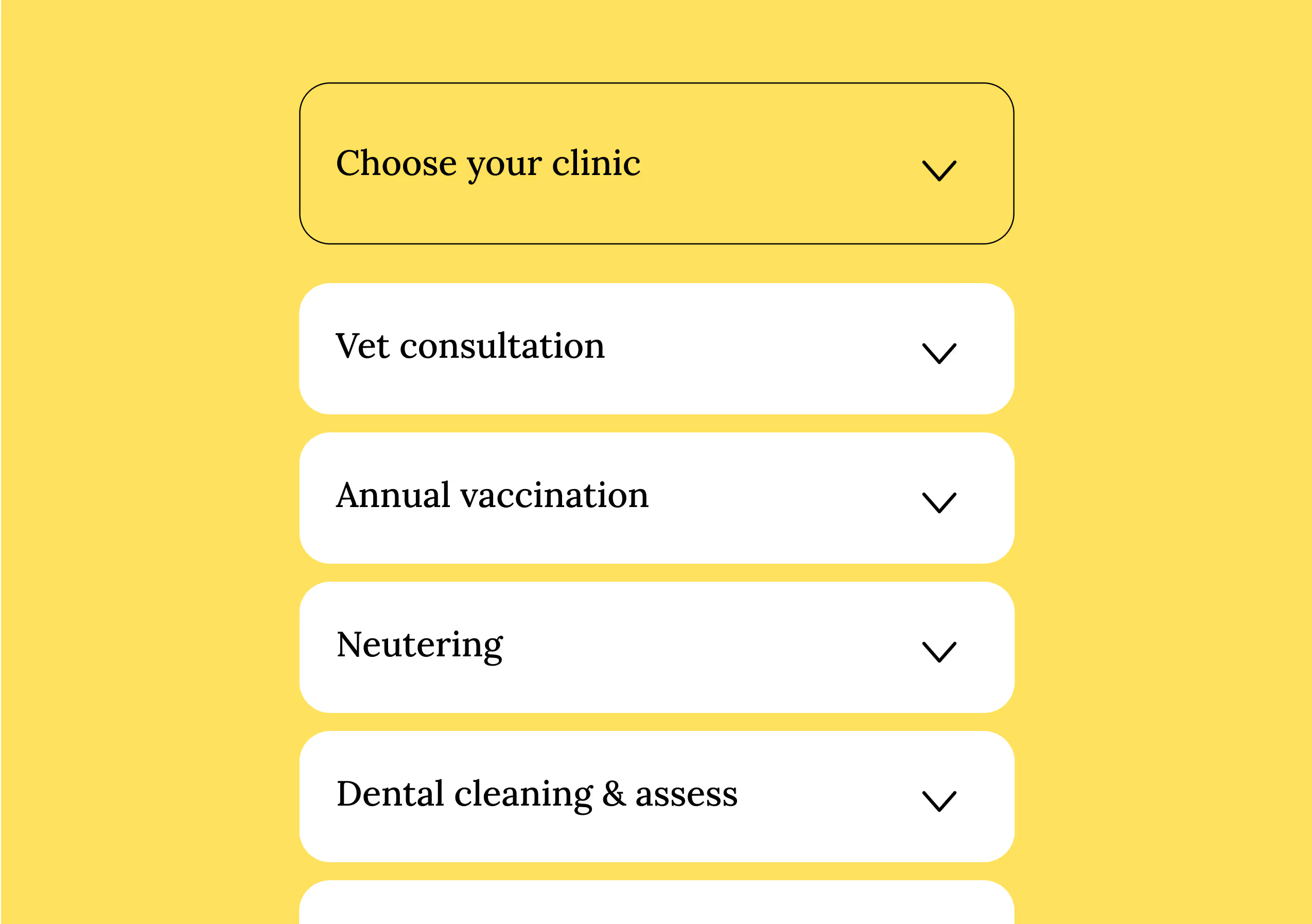Vaccines & boosters
Vaccinating your pet helps protect them from serious diseases, promoting a healthier and longer life.

Vaccinating your pet helps protect them from serious diseases, promoting a healthier and longer life.



Vaccinations are an essential part of a pet's routine healthcare. They help to protect pets from a range of serious and potentially life-threatening diseases, promoting a healthier and longer life. This not only keeps your pet safe, but also protects the wider pet community by reducing the spread of contagious illnesses.
Vaccines also reduce the risk of costly emergency treatments and allow your vet monitor your pet’s overall health during annual appointments. Staying up to date with vaccinations is one of the most simple and important things you can do for your pet.

Once your pet has completed their initial course of vaccinations, they’ll need to come in once a year for their annual booster. These visits help maintain strong immunity and allow your vet to give your pet a general health check too.
Vaccines protect against the following diseases:
Your puppy will need two initial vaccination appointments, spaced about a month apart. They must be at least 8 weeks old to receive their first vaccine.
This is a non-core vaccine, typically offered at your puppy’s second vaccination appointment. It's a live vaccine, so we advise against giving it if anyone in the household is immunocompromised.
A single injection is available from 12 weeks of age. Please note: This vaccine is only necessary if your pet is travelling outside the UK.
There are very few side effects associated with routine vaccinations. In some cases, pets may experience mild symptoms such as vomiting, diarrhoea, or slight swelling at the vaccination site. In rare instances, more serious reactions can occur. If this happens, we will discuss whether it’s safe to continue with routine vaccinations.
When your pet comes in for a vaccination appointment, we will not only administer their vaccines but also assess their overall health. This includes checking their eye health, dental health, cardiac health, and more. We will proceed with the vaccination only if we determine that your pet is in good health on that day.
If too much time has passed since your pet’s last vaccination, it may be necessary to restart their vaccine course. This means they will need to come in for two separate vaccine appointments.
If you prefer not to vaccinate annually, we can perform a yearly blood test to check if your pet is still producing antibodies for the disease. In most pets, the antibody levels will be low, meaning they will need to be re-vaccinated. However, if your pet’s antibody levels are high enough, we may be able to delay the vaccination.

We've redesigned vet care, from your pet's perspective. Calming care in clinics purpose-built for anxious pets.

Instant WhatsApp advice and same-day appointments. We team up with you at every step because you know your pet best.

“We built Hello Vet on the belief that fully cared-for clinicians provide better care for every pet.”
Dr. Christian LeVan, Clinical Director

Free advice over WhatsApp, provided by our clinical team. We've saved our clients thousands in fees.

We’re the UK’s first vet to let you stay with your pet during procedures, when they need you most.

Our clinics are designed by vets to keep anxious pets calm. Sunken scales, separate waiting areas, treats. Open 7 days a week.

Our prices are public, we share cost estimates upfront and we offer contextualised care, exploring treatment options for every budget.